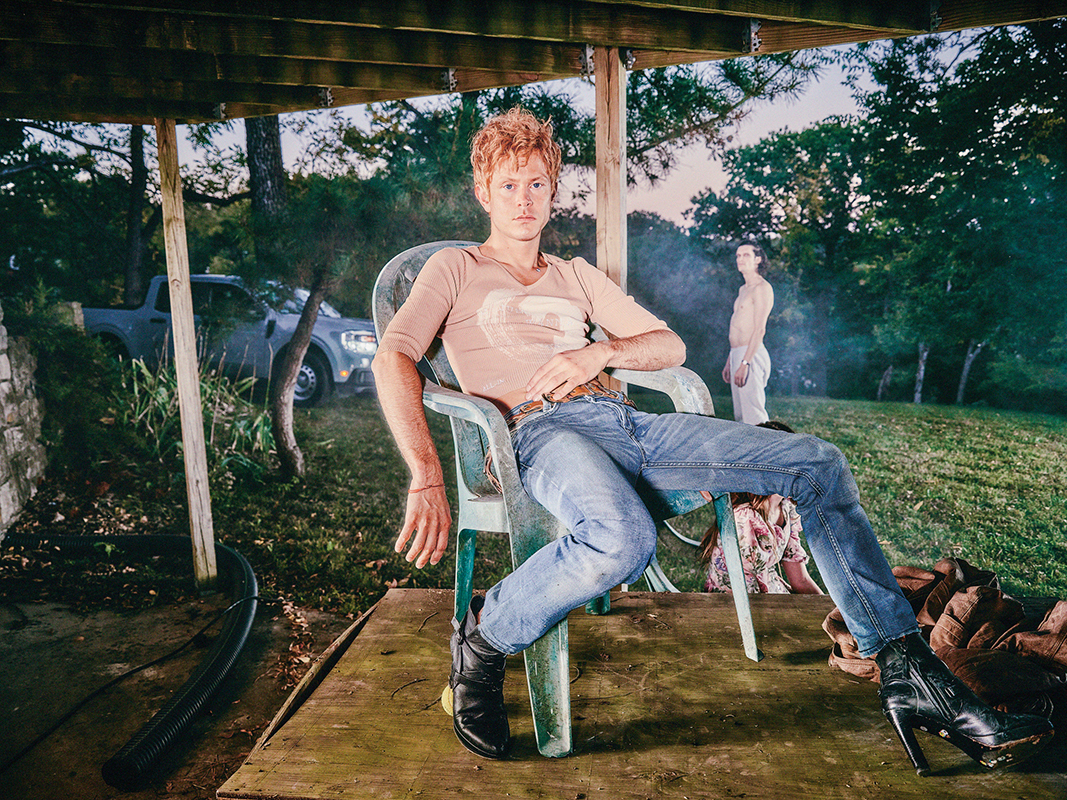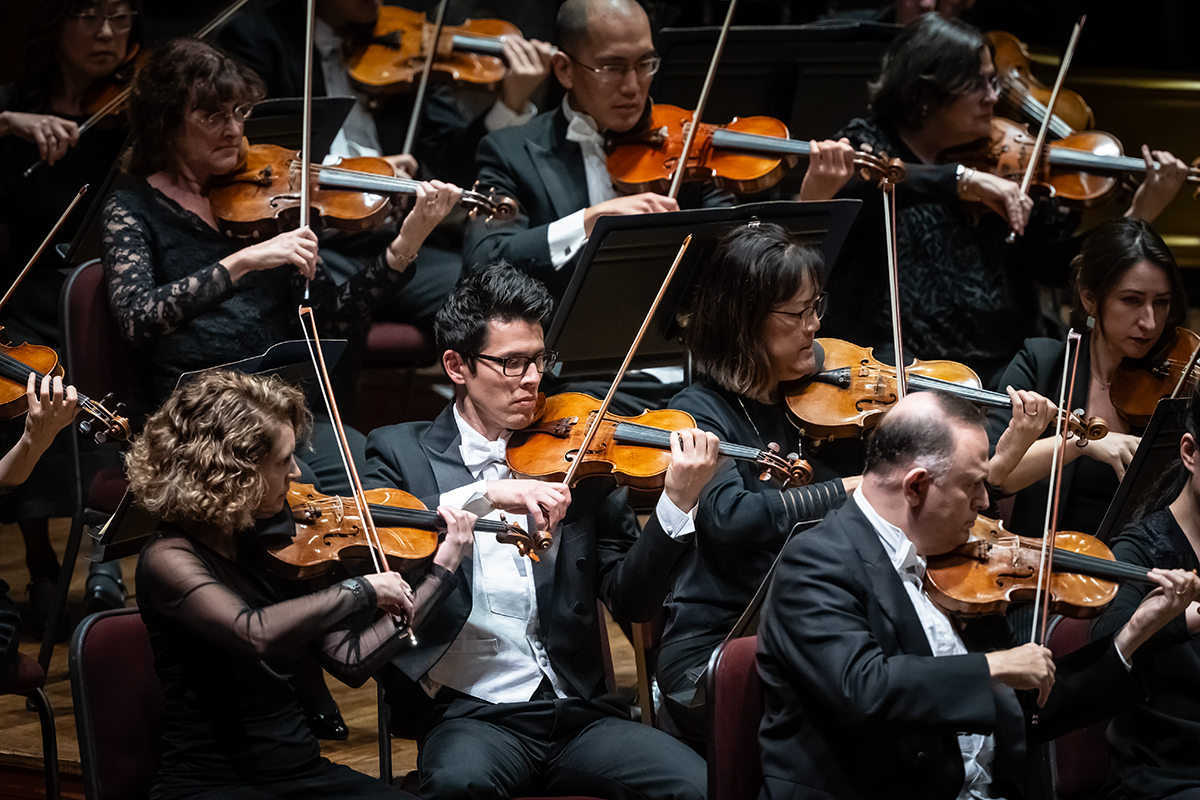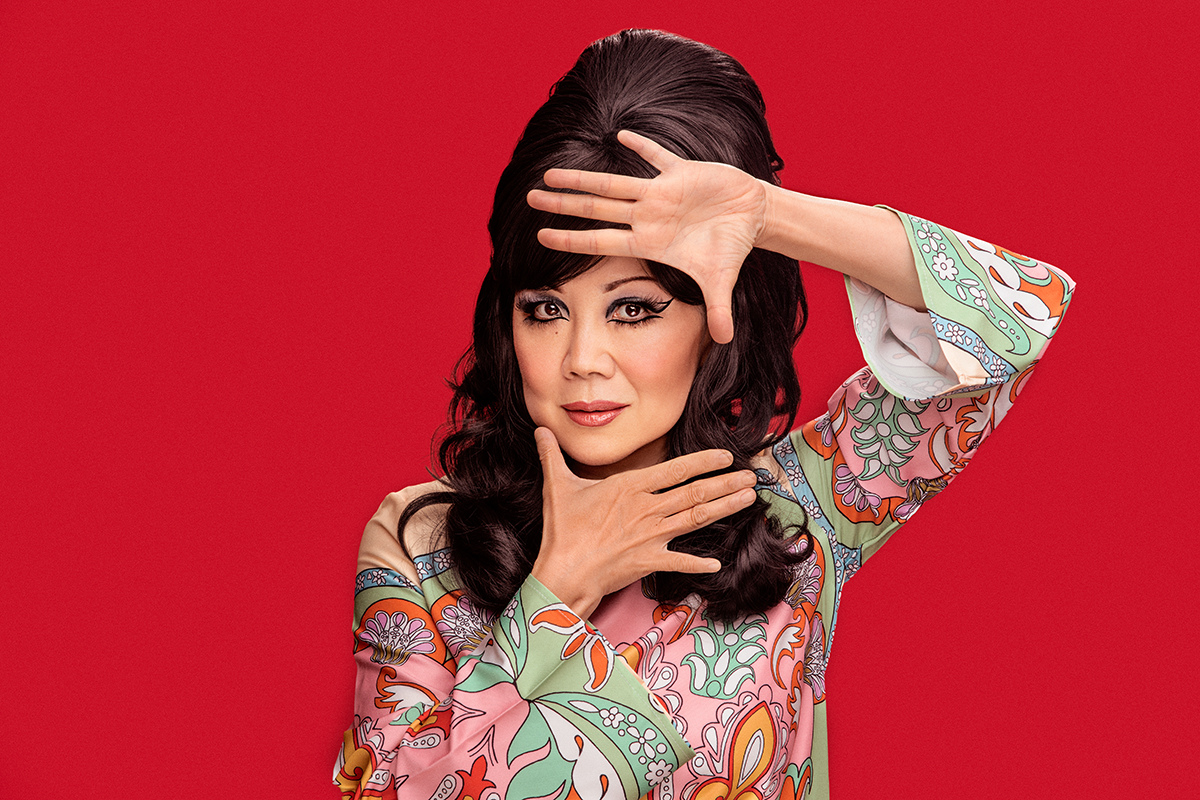DC Opera Review: Washington National Opera’s ‘Tosca’ at the Kennedy Center
WNO’s Tosca delivers its heroine and famous arias with atmosphere and intimacy.

Like stepping into the murky depths of an antique painting, the Washington National Opera’s Tosca (★★★★) gorgeously evokes cavernous candle-lit interiors and Machiavellian cruelties. These are painted sets (provided by the Seattle Opera) to savor — the architecture is rendered with an immense attention to detail, the final scene with its starry night and looming statue is pure magic. If there is less of the sometimes breathtaking spectacle of the WNO’s 2011 production, this is Puccini with atmosphere and intimacy.
It starts with the deft focus of director Ethan McSweeny, who keeps the drama grand but eminently human. Tosca may be a diva, Cavaradossi a passionate artist, and Baron Scarpia a textbook villain, but the interpretations here have a convincing urgency. Tosca has attitude, but she gets visibly unnerved. Scarpia may be all about trapping his prey, but his composure slips just enough. And if Cavaradossi has some operatic swagger, his teary cri de coeur as he faces death convinces.
The intimacy doesn’t stop with McSweeny’s interest in what makes us messily human. Conductor Speranza Scappucci also brings a brooding sensibility that feels close to the heart and soul of the story. She conjures a Puccini that feels wedded to the action — the music cries in alarm, beats like a desperate heart, keens like a lost soul. It is compelling, even if it feels a tad unfocused at times.
Does all of it work, all of the time? Almost. Scarpia’s attempt to wrestle Tosca onto a tabletop in the middle of his psychological game is worrisomely awkward, even if it reveals his base desires. McSweeny’s choice to lift away the church as Scarpia confesses his most ungodly lust during the te deum can’t hold a candle — holy or otherwise — to 2011’s gradually amassing tableau.
Of course, Tosca is about its heroine and famous arias and, here, none disappoint. In the title role, Keri Alkema is utterly credible. She is volatile but warm, strong but human. She holds herself with a poise that is at once essential to her nature, but also, in the face of Scarpia’s pressure, a last vestige of strength that is full of pathos. When she sings “Vissi d’arte” while facing the prospect of giving sexual favors in exchange for Cavaradossi’s life, it is easy to believe in her shock at the loss of her happy life to the uninvited horror of her lover’s torture and her own impending fate. Tosca is engaging and nuanced, and Alkema sings her with everything this woman must be. With a soprano that is at once as richly sparkling as it is powerful, this is Puccini delivered to the universe. To close one’s eyes and listen to this Tosca’s heart, is to thank the gods (Norse or otherwise) that Washington has a world-class opera. That Alkema began her career as one of the first of the Domingo-Cafritz Young Artists is just icing on the cake.

Not quite as easy to gush over is Riccardo Massi’s Cavaradossi. Certainly looking the part, Massi has presence and he is increasingly persuasive once Scarpia targets him for torture and removal from Tosca’s life. His moments before a dawn execution when he sings the famous “E lucevan le stelle” are emotionally pointed, his voice boldly expressive. And if you yearn for a gutsy tenor who likes to hold a cathartic note, he will please. But there is the slightest chalkiness to Massi’s tone that hinders some clarity and it is not quite saved by his power and endurance.
Reprising his role from the 2011 production, Alan Held gives his Scarpia the kind of patrician entitlement that never has to try too hard (save for the moment on the tabletop), keeping him understated and away from caricature. But, if there is a quibble, it is that Held never quite relishes his evil with conviction. The moment when he chuckles like a Bond villain over his glass of Spanish wine doesn’t ring true. It is as if he is as chained to it as Cavaradossi is to his torture chair. Known for his Wagnerian prowess, it is interesting to hear Held sing Puccini and he brings a gratifying, unwavering gravitas.
In smaller roles, Wei Wu is a wonderfully drawn Sacristan, singing with appealing nuance as he navigates the shenanigans in his vestry. As Scarpia’s main henchman Spoletta, David Cangelosi is intense and charismatic, singing with a pleasingly open sound. Finally, Holden Browne’s Shepherd Boy provided a brief, haunting interlude.
Thus, if not quite the be-all and end-all, this is nevertheless a Tosca of heart and soul.
Tosca runs to May 25 at the Kennedy Center Opera House, 2700 F Street NW. Tickets are $35 to $300. Call 202-267-4600 or visit kennedy-center.org.
Support Metro Weekly’s Journalism
These are challenging times for news organizations. And yet it’s crucial we stay active and provide vital resources and information to both our local readers and the world. So won’t you please take a moment and consider supporting Metro Weekly with a membership? For as little as $5 a month, you can help ensure Metro Weekly magazine and MetroWeekly.com remain free, viable resources as we provide the best, most diverse, culturally-resonant LGBTQ coverage in both the D.C. region and around the world. Memberships come with exclusive perks and discounts, your own personal digital delivery of each week’s magazine (and an archive), access to our Member's Lounge when it launches this fall, and exclusive members-only items like Metro Weekly Membership Mugs and Tote Bags! Check out all our membership levels here and please join us today!


























You must be logged in to post a comment.